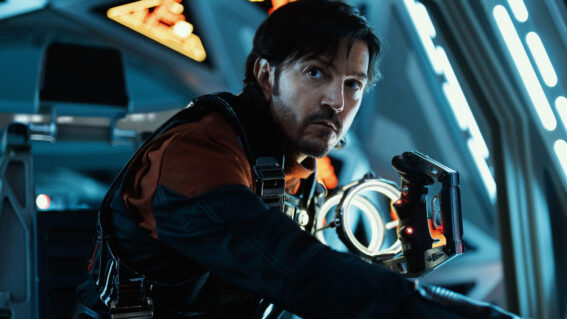“It’s an enigma”: The inimitable David Lynch on returning to Twin Peaks
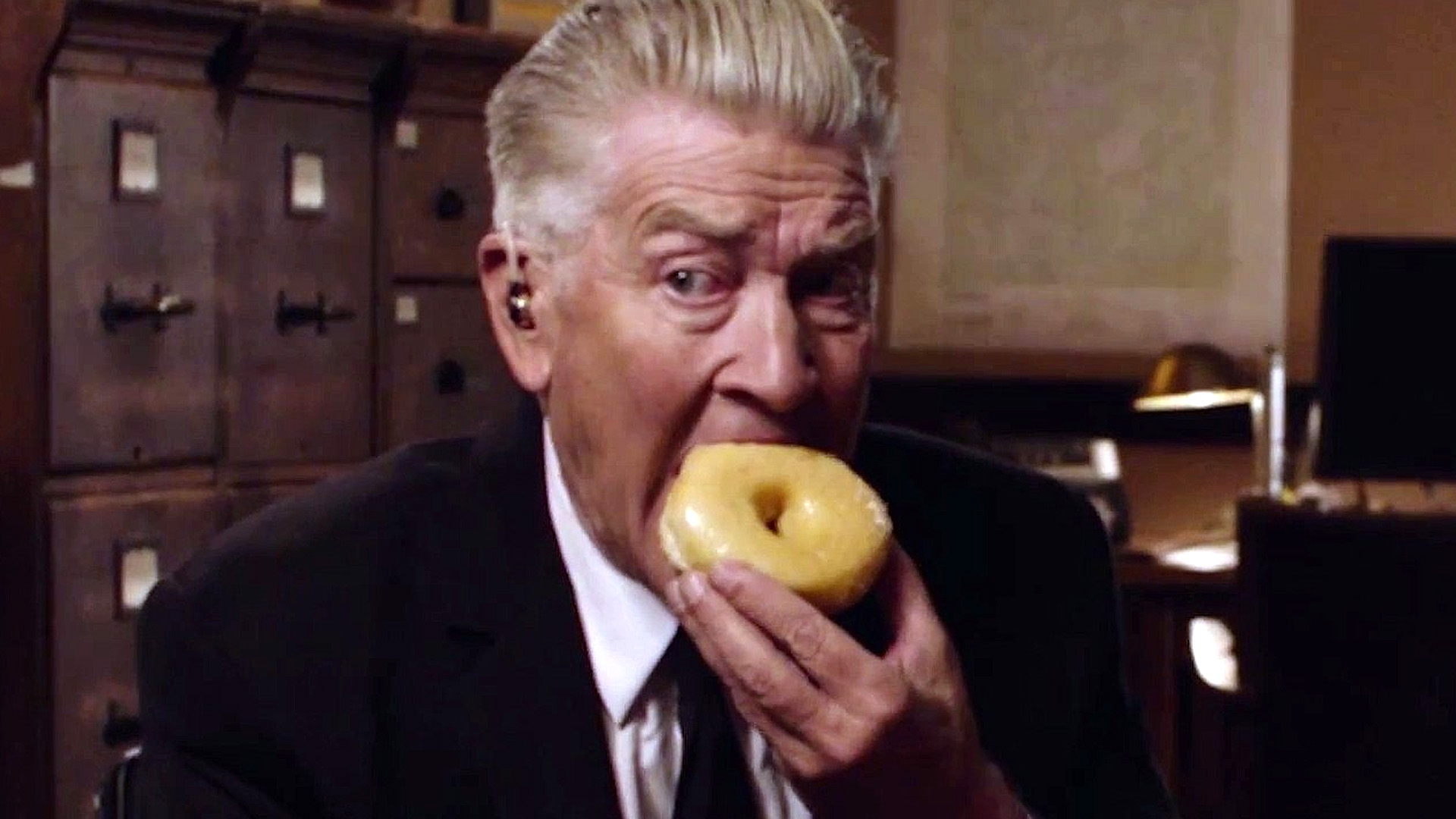
As we awake to the sad news that the great David Lynch (the greatest?) has passed away, we republish Dominic Corry’s interview with the master filmmaker from 2017, as he returned with the third season of Twin Peaks.
You can also read Aaron Yap’s personal take on the career of cinema’s consummate “weird guy” and Luke Buckmaster’s retrospective on Wild at Heart as it turned 30.
As Lynch told us in Twin Peaks: “You know about death, that it’s just a change, not an end…”
Asking David Lynch questions is a lot like staring into an abyss. Although Lynch is considerably more verbose than your average abyss, the answers he provides are invariably not the ones that were sought or expected, yet they tend to exist on a more casually profound level than the questions.
I got the chance to speak to Lynch ahead of the long-awaited and highly anticipated premiere of the new season of Twin Peaks, to which Lynch and his collaborators have returned two and a half decades after the series finished.
Lynch’s in-person demeanor somewhat recalls that of Gordon Cole, the FBI agent character he plays in the Twin Peaks universe. But Lynch is less affected, and hypnotically charming.
FLICKS: What was the biggest challenge you faced coming back to Twin Peaks?
DAVID LYNCH: I guess you could say every endeavour is somewhat of a challenge. You don’t know what will happen and you want to try to get everything correct and there’s many, many elements put together over a long period of time. So it’s a challenge. But it’s also really a fun challenge.
Flicks: Was there a singular moment when you decided to revisit the show?
[Co-Creator] Mark Frost called me and invited me to lunch at [legendary showbiz eatery] Musso and Frank. And that lunch started us talking about going back into the world.
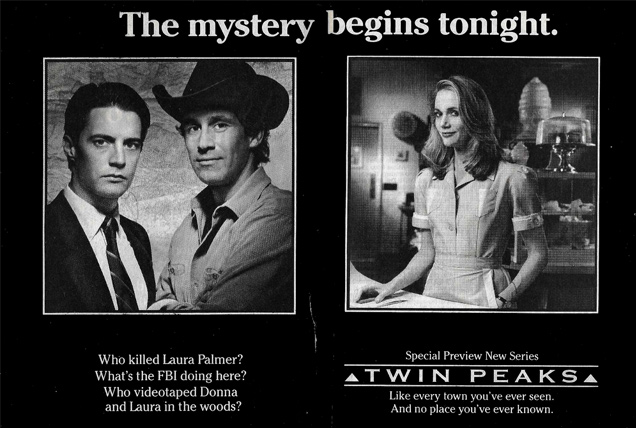
The original series has grown in stature and reputation over time. What do you think there is about the feeling and aesthetic that speaks to now?
I don’t know. It’s an enigma. It’s strange. It did translate to places all around the world. I don’t think anybody knows what thing it had that caused it to resonate like it did. It’s an abstract thing.
With all the amazing shows populating today’s incredibly varied TV landscape, is there more pressure to be original?
No. (Laughs). It’s the same thing. You get ideas and you try to stay true to the idea as you translate it to cinema and back then I saw the pilot as a film and now it’s the same thing. It’s a film. It’s just shown in parts.
Do you watch a lot of TV shows?
No. I don’t. I sometimes watch the news. And now I have discovered this channel and it’s called Velocity channel. And they have cars. And they have customised shops. And I have learned a lot about…I always loved cars, but I see them as great artists with metal and machines. Really incredible stuff. Really beautiful.
What about movies?
No. I don’t see any movies. I just like to work. And that’s where I find the enjoyment.
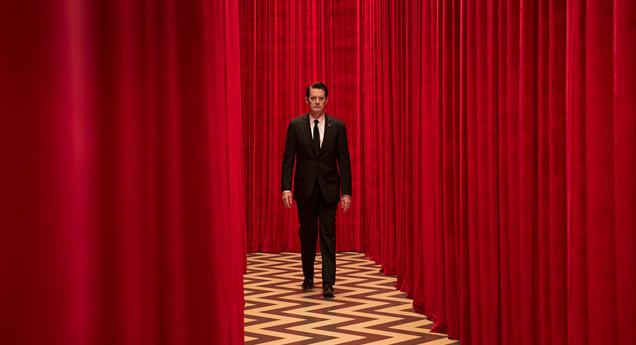
When were you a child, did any particular movie strike you enough to make you want to become a director?
No. No movie made me wanna do that. I came into film through painting. The first film I made was a moving painting. I wanted to have a painting that moved. I made that film and that was gonna be it. But a gentleman who saw that at the Academy in Philadelphia offered me money to make a similar thing for him. So then I went on to the second film. And then I got a grant from the American Film Institute to make a third film. Then I got accepted to the Center for Advanced Film Studies in LA to make Eraserhead. And one thing led to another. It all came about through painting.
Ideas interest me. Ideas that I fall in love with I say are like gifts. I catch an idea, it wasn’t there, it wasn’t there, it wasn’t there, suddenly it’s there! And you feel that idea. Whatever it brings and they bring a lot. You write that idea down and that’s the beginning of something sometimes. And it’s a thrilling process catching ideas and staying true to them and translating them from one medium to another.
Your films betray something of an obsession with classic cinema.
I have seen movies. When you are working you don’t have time to do a lot of other things. If you had time then you wouldn’t be doing your work. That’s the thing. I have nothing against movies. I love so many movies, love, love, love, but I don’t have the time to go do that.
What are some of your favourite movies?
Many, many, many films stick with me. Sunset Boulevard is one. 8½ by Fellini is another. Rear Window by Hitchcock is another. Mon Oncle and Monsieur Hulot’s Holiday by Jacques Tati is another. I love so many films.
Speaking of Jacques Tati, you have a strong relationship with France – has that affected your art?
I love France, because they are the greatest art lovers in the world. I think. There’s other countries that love art, but in France it’s so special. Everything they do they turn into art. This business of cooking. This high art form of cooking is incredible. Gardening, doing different things, it’s all kind of an art form. There’s a great atmosphere there. I love to go to Idem Printing Studio. When I go there…that’s pretty much where I go every day. The smell of printer ink. And to be able to do lithographs and woodcuts in that place is like being back in time and modern at the same time. It’s just fantastic. A great-feeling place.
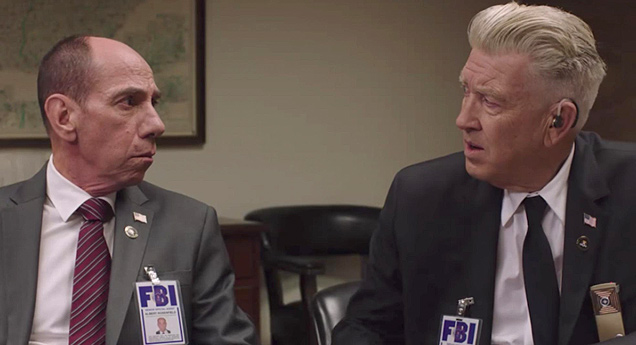
Do you use social media?
I sometimes use Twitter. I believe it’s a beautiful thing. It connects the world and it’s great. It’s great.
Why do you think murder is romantic?
I don’t think it’s romantic.
It could be argued that there’s a romantic presentation of it in your work.
I don’t think it’s romantic.
What are you doing next?
I don’t know. I would like to paint this summer.
Do you like to write?
If I get ideas I write them down. (Laughs).
Originally published by Flicks on May 22, 2017.


